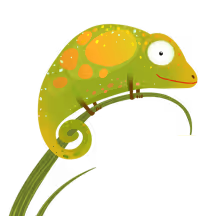We have dedicated plenty of time discussing organic pest control measures and natural friendly approaches to pest deterrence. While those who are interested in an environmental-savvy approach to horticulture and gardening have also heard about Integrated Pest Management (IPM), many homeowners have still a few uncertainties in relationship to this concept. Today our pest control Arlington, TX experts want to shade some light on holistic horticulture and IPM, focusing on their main principles, rules and guidelines. You might be surprised to find out that you are already employing such measure without knowing their official name. Others might be surprised to learn that we can look at pests, lawn care and horticulture from a different perspective.
IPM is a holistic approach to pest control. While the concept was developed mainly to cover crops cultivation and agricultural / horticultural activities, one can adapt such perspective to his own lawn and garden. The main idea behind this approach is that pests should rather be managed as opposed to being exterminated.
Pest management is easily observable in nature: one cannot really eradicate pests in an area, but one can help the environment fight against pests and become resilient to them through natural means. On a smaller scale, in your own backyard, this approach translates into “learn to accept a minimum amount of pests lurking on your property while you employ cultural, physical, chemical, and biological management strategies to keep your garden healthy and aesthetically beautiful.”
What does this mean exactly? This means that you can maintain a healthy balance between pests and your vegetation or crops without harming the environment. This type of strategy is the one covering natural pest control measures we have talked about before:
In the IPM approach, a healthy garden, lawn and landscape is the main pillar to build a proper pest management on, our pest control Arlington, TX experts report. The correct employment of healthy and safe horticultural and lawn care practices helps all the plants to thrive vigorously, enabling them to fend off pests naturally.
You may not be able to control weather or environmental damages, but you can control the amount of pests you allow on your property, our pest control Arlington, TX experts say. Such holistic approach is not new, but it needs a shift in perspective and practices in order to be fully implemented. If you are interested in such IPM measures, ask your local team for more details – after all, you are probably already using many of these methods.


